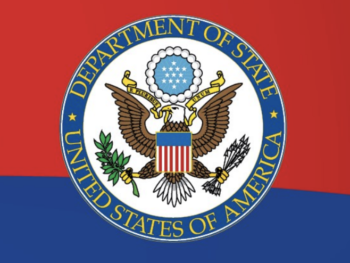Introduction
Title: Navigating the Realities of EB-2/NIW Business Plans: Clarifying Common Misconceptions
Introduction
Embarking on the immigration journey through the EB-2/NIW (Employment-Based Second Preference/ National Interest Waiver) category holds both promise and challenge. As adept practitioners in crafting NIW business plans and personal endeavor plans, we have come across a series of misunderstandings that often obscure the understanding of EB-2/NIW applicants. This article is aimed at dispelling these misconceptions and shedding light on the vital components of constructing a robust EB-2/NIW business plan that seamlessly aligns with the program’s prerequisites.
Misconception 1: Financial Viability is Inconsequential
Reality: Bolstering Success with Financial Support
A prevailing misconception suggests that the government doesn’t factor in the petitioner’s financial resources when assessing an EB-2/NIW business plan. However, the truth is that the financial underpinnings of the proposed endeavor hold substantial importance. While explicit proof of funding might not be an initial requirement, the business plan must present a meticulously documented case demonstrating the project’s feasibility. For example, if you’re proposing the establishment of an Assisted Living Facility, the plan should delineate how you intend to meet startup expenses.
While concrete evidence of financial backing may not be demanded upfront, immigration authorities meticulously scrutinize the business plan’s economic viability, funding sources, revenue forecasts, and operational budgets. A robust business plan reassures authorities that the proposed endeavor not only aligns strategically but also possesses the financial strength to thrive.
Misconception 2: The Proposed Endeavor Can Diverge
Reality: Harmonizing with Expertise and Background
Another common misconception revolves around the belief that the proposed endeavor can be unrelated to the beneficiary’s skills, experience, and background. In reality, the EB-2/NIW category is intended for individuals with exceptional abilities or advanced degrees capable of making substantial contributions to the national interest of the United States. Hence, the proposed endeavor must seamlessly align with the beneficiary’s past achievements, skills, and expertise.
A meticulously crafted EB-2/NIW business plan should explicitly highlight how the beneficiary’s unique capabilities and proven track record in analogous ventures will be instrumental in the proposed endeavor’s success. This strategic alignment between the beneficiary’s qualifications and the venture’s objectives underscores the potential positive impact on the nation’s interests.
Misconception 3: Tax Contributions Alone Suffice
Reality: Demonstrating Broader National Relevance
A prevalent misconception insinuates that monetary tax contributions alone suffice to establish a project’s national importance within the EB-2/NIW category. However, while tax contributions undeniably play a role in the economy, they alone do not meet the stringent criteria of national importance. The scope of the national interest requirement goes beyond financial contributions.
To qualify for the EB-2/NIW category, the business plan must meticulously delineate how the proposed endeavor will substantially serve the national interest. This could encompass areas such as economic growth, job creation, innovation, healthcare, education, or other critical sectors. The plan should skillfully convey how the beneficiary’s expertise and the project’s objectives harmoniously align with the broader goals of the United States. Demonstrating how the endeavor will contribute to the nation’s interests encompasses more than mere financial contributions.
Conclusion
Navigating the intricacies of immigration through the EB-2/NIW category calls for a well-informed approach. To ensure a seamless process and enhance the likelihood of a successful application, it is imperative to debunk myths and embrace the realities of crafting a compelling EB-2/NIW business plan.
By addressing misconceptions head-on and understanding the significance of financial viability, aligning the proposed endeavor with the beneficiary’s skills, and highlighting broader national relevance, applicants can build a strong case. Our experience as immigration professionals underscores the value of a comprehensive, well-documented business plan as an applicant’s most potent tool for presenting a persuasive case that resonates with the stringent EB-2/NIW criteria.
For tailored guidance suited to your specific circumstances, consult with our team at The Law Office of Luis Victoria in Miami, Florida USA. We’re here to guide you through the complexities of the EB-2/NIW process, increasing your prospects of realizing your American aspirations.




 HOW TO UPLOAD DOCUMENTS TO CEAC
HOW TO UPLOAD DOCUMENTS TO CEAC
Leave a Reply